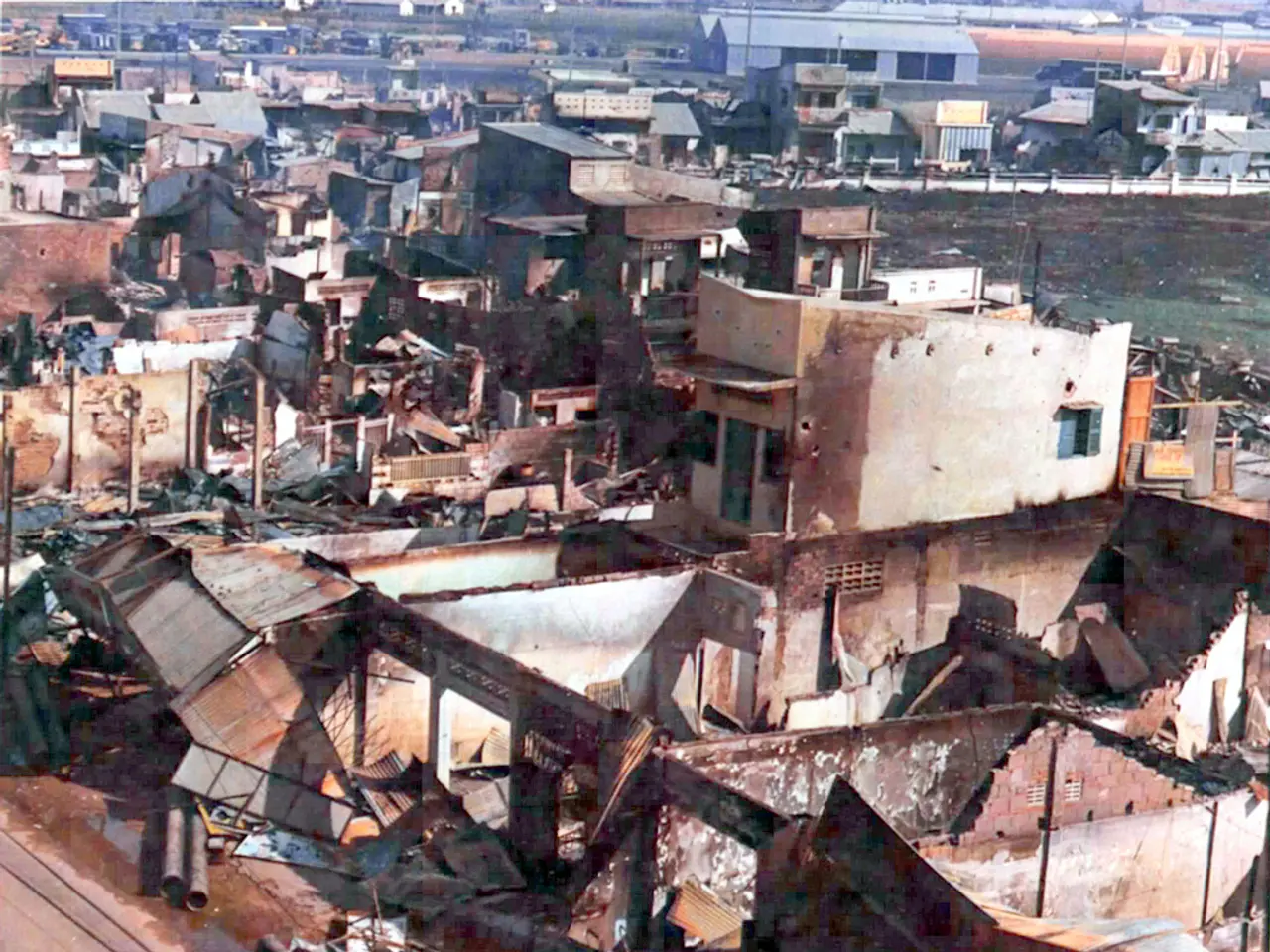Abandoned structures in China attract adventurers, despite potential hazards
In China, the trend of urban exploration, or 'urbex,' has seen a significant rise due to the recent slowdown in the property market. This has resulted in numerous large-scale construction projects being left unfinished, providing unique and intriguing locations for urban explorers.
The growth of urbex in China is closely linked to the property market's downturn. Abandoned sites, ranging from unfinished skyscrapers to deserted residential complexes, offer a novel and rarely seen urban environment for explorers, attracting both domestic and international enthusiasts.
One such site is the Pentagon Mall, an uncompleted megaproject in Shanghai's Pudong district. The giant concrete building, mostly in disrepair, has become a hotspot for urban explorers, with messages left for each other on its top floor. Remnants of human presence, such as mattresses, discarded takeout, cigarette boxes, and laundry, can still be found in some rooms.
The community of urbex enthusiasts has grown significantly, sharing their experiences and locations through social media and dedicated forums. This has strengthened the social aspect of urbex, fostering connections around a shared interest in exploring urban decay and forgotten places.
However, urban exploration in China poses significant safety risks. Many abandoned structures are unstable and hazardous, with frequent warnings regarding injury and accidents in these unsafe environments. Legal issues are also prominent due to trespassing laws and property rights, as many urbex sites are private property or restricted areas, making unauthorized entry illegal.
The urbex phenomenon highlights underlying urban challenges, such as over-investment and speculative development in China’s real estate market. It brings attention to the waste of urban spaces and the socio-economic implications of stalled growth, sometimes sparking public discourse on sustainable city planning and redevelopment.
Urban explorers like Xu, a 29-year-old tech worker from Qingdao, have gained a following for their photos of abandoned buildings. Inside the Pentagon Mall, remnants of its past were found, including a mahjong table, laundry sheets, and piles of dinner plates. Brin Connal, a long-time explorer, noted that he has not found sites like these in Europe and that many unfinished projects exist in China.
Connal mentioned that some abandoned locations in China have become overwhelmed with people, which led to safety concerns. Urban exploration takes place in a legal grey area and can result in fines for trespassing. Despite this, the sense of community among urban explorers in China is strong, with Sean, a Shanghai resident, noting that it is very welcoming.
China's recent property market downturn has provided opportunities for urban explorers, offering a unique perspective of abandoned buildings in the country's sprawling metropolises. This trend reflects broader urban dynamics and the evolving relationship between people and their changing cityscapes.
The strong growth of urban explorers in China is evident in the increased popularity of 'home-and-garden' projects that have been left unfinished due to the property market's downturn. The unique and intriguing locations provided by these abandoned sites, such as the Pentagon Mall in Shanghai, attract a diverse community of domestic and international enthusiasts, creating a novel 'lifestyle' for urban explorers.




